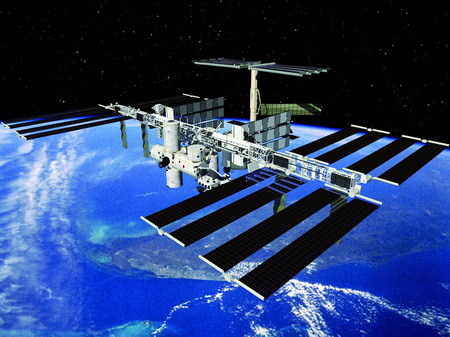|
中國將在2016年前發(fā)射空間實(shí)驗(yàn)室
China to launch first space lab by 2016
[ 2011-03-04 13:02 ]

特別推薦:2011兩會(huì)雙語直通車
全國政協(xié)委員、神舟飛船原總設(shè)計(jì)師戚發(fā)軔近日表示,中國將在2016年前研制并發(fā)射空間實(shí)驗(yàn)室,突破和掌握航天員中期駐留等空間站關(guān)鍵技術(shù),并開展一定規(guī)模的空間應(yīng)用。空間實(shí)驗(yàn)室是中國載人航天工程的第二步,為最終在2020年建成中國空間站提供技術(shù)支持。
2011年下半年發(fā)射的中國首個(gè)目標(biāo)飛行器“天宮一號”,將于2012年完成交會(huì)對接試驗(yàn)的重要使命。交會(huì)對接是中國載人航天空間實(shí)驗(yàn)室階段的一項(xiàng)關(guān)鍵技術(shù)指標(biāo),將由“天宮一號”以及神舟八號、九號、十號飛船共同完成。

 |
|
A Chinese senior space technology expert said Thursday that China is expected to launch its first space laboratory before 2016.
|
A Chinese senior space technology expert said Thursday that China is expected to launch its first space laboratory before 2016.
"With the technological program ready, the lab's research and development are going smoothly," Qi Faren, former chief designer of Shenzhou spaceships, told Xinhua in an exclusive interview.
As the second phase of China's manned space program, the lab, likely to be named Tiangong-2, will gradually be developed into the core module or experiment module, said Qi.
China is to launch its first unmanned space module, Tiangong-1, or Heavenly Palace, in the second half of 2011, serving as a platform for spacecraft to rendezvous and dock - allowing for the building of the space station.
China will have its own space station before 2020, said Qi, a member of the 11th National Committee of the Chinese People's Political Consultative Conference, before the annual session of the country's top political advisory body, which is scheduled to open Thursday.
相關(guān)閱讀
俄2014年冬奧會(huì)火炬或游太空
“嫦娥二號”發(fā)射圓滿成功
神七問天 書中國航天史詩
(Xinhua)

(中國日報(bào)網(wǎng)英語點(diǎn)津 Helen 編輯)
|